Cloud storage is popular because it doesn’t require actual devices for storing your online stuff, reducing maintenance costs and providing a reliable backup solution. In this article we will understand each and every aspect of cloud storage, like types, the best storage service, security, advantage, disadvantage etc.
Introduction
What cloud storage is actually ?
Cloud storage is a way to save and access your files over the internet instead of using a physical device like a computer or external hard drive. It’s like having your stuff online, making it simple for teams to work together, be more productive, and stay connected, no matter where they are. Users can securely access files and applications from anywhere with an internet connection.
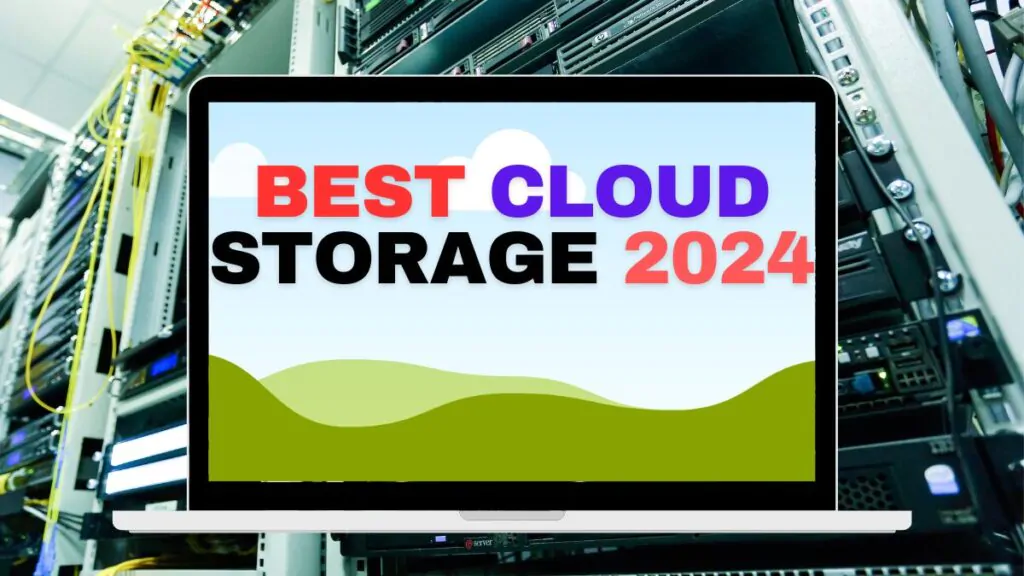
With cloud storage, you can easily adjust how much space you need as your needs change, avoiding the limitations of traditional storage. This helps businesses adapt without spending a ton on infrastructure. Here you have to only pay for what you actually use, making it a budget-friendly option for all kinds of businesses. So, cloud storage is a smart and practical solution to handle your data.
How does Cloud Storage work ?
Cloud storage is like a virtual storage space located in different places called data centers. You use the internet to put in, take out, and manage your stuff using websites or special apps from the cloud storage service. To keep your things safe, they make copies on different computers in different areas. They also make sure only the right people get in by checking who you are, and they use secret codes to keep your stuff private. Cloud storage is easy to change – you can get more space or less as you need it. Sometimes, you only pay for what you actually use.
Types OF Cloud Storage
A. Object Storage
- This kind is like a flexible and scalable method of saving information as objects.
- Each object typically consists of the data itself, metadata, and a unique identifier.
- This storage is useful for Managing large amounts of unstructured data, such as images, videos, and documents.
- Works effectively for applications requiring a substantial amount of storage.
B. Block Storage
- Divides data into fixed-sized blocks and stores them separately.
- Good for structured data and used in situations where speed is crucial.
- Commonly used for databases and storing virtual machines.
- Gives better control over data for apps that need to work in a certain way to perform well.
C. File Storage
- Organizes data in a way similar to how files and folders are set up on your computer.
- Best for sharing, especially in systems like network-attached storage (NAS).
- Perfect for workplaces where many people need to use the same files together.
- Makes it easy to organize and find data in a familiar way.
Top Cloud Storage Service Provider
When it comes to keeping your data safe, choosing a reliable cloud storage service is a must. Here are some top cloud service provider that keep your information secure:-
A. Google Drive
- Google Drive is a service provided by Google that lets you store and share files online.
- Keeps your data safe with strong security features.
- Adds an extra layer of protection with two-factor authentication.
- Works well with other Google productivity tools, making everything smooth and easy.
- Primarily designed for personal and small-scale professional use.
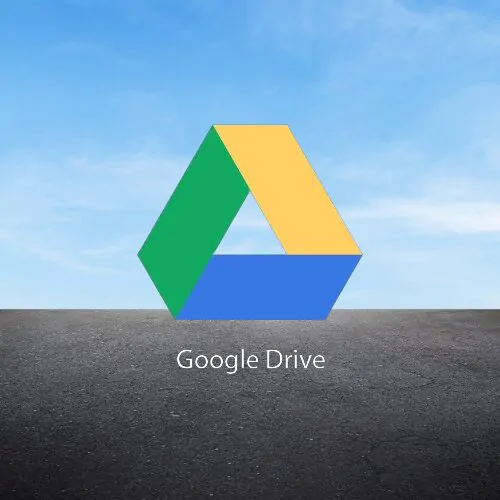
Price:-
- Cost: Get started with 15GB free or upgrade to 2TB for $99.99 annually ($8.33 monthly).
- Device Access: Connect on an unlimited number of devices.
- Visit: google.com/drive for more .Visit for any updated plan – google.com/drive/#pricing
B. Google Cloud Platform (GCP)
- Google Cloud Platform (GCP) is a suite of cloud computing services offered by Google
- It is a super useful set of tools made for big companies, developers, and businesses and large-scale applications.
- It’s more than just a place to keep files. GCP helps people build websites, use powerful software, and do various productive things with data.
- GCP extends far beyond storage, offering a wide range of infrastructure and platform services, such as computing power, machine learning, data analytics, and more.
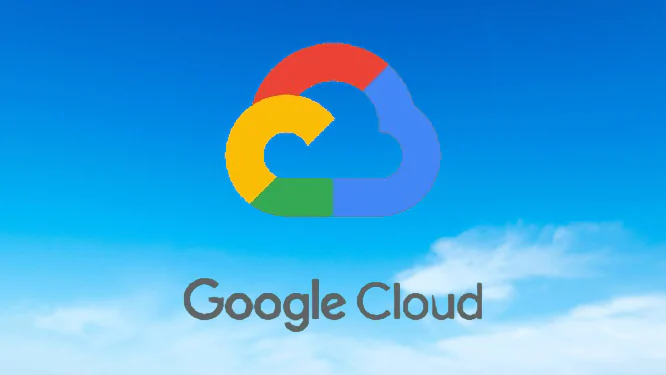
Price:-
- Cost: Its cost depends upon transferring data into and out of Cloud Storage. For details visits cloud.google.com/storage/pricing and cloud.google.com/products/calculator?hl=en
C. Microsoft OneDrive
- OneDrive is a cloud storage service developed by Microsoft, allowing users to store, access, and share files easily across devices.
- it’s part of Microsoft 365, it works smoothly with all your other tools and services.
- Comes with high-level security features, like protecting against ransomware.
- OneDrive is primarily a cloud storage service focused on personal and collaborative file management for individual users and small-scale professional use.

Price:-
- Free Tier: Enjoy 5GB for free.
- Upgrade: Get 1TB for $6.99 per month.
- Device Access: Unlimited devices.
- Explore More: For any update visit microsoft.com/microsoft-365/onedrive for details.
D. Microsoft Azure
- Microsoft Azure is like a giant cloud storage warehouse where businesses and computer experts can store, organize, and use lots of data and information. It’s not just a place to keep files; it’s a high-tech storage space on the internet. So, instead of just a toolbox, it’s more like a massive digital warehouse for storing and managing all kinds of digital stuff.
- Made for big companies, developers, and tech experts who need different kinds of computer tools and setups.
- It provides various a range of services, like virtual machines, databases, machine learning, and more.

Price:-
Microsoft Azure has various plans and has a variety of storage services, each with its own pricing model based on factors such as storage type, region, and usage.
- Blob Storage: Used for storing large amounts of unstructured data.
- File Storage: Managed file shares that can be accessed using the standard Server Message Block (SMB) protocol.
- Table Storage: A NoSQL data store for semi-structured data.
- Queue Storage: A messaging store for reliable messaging between application components.
For more details and update on pricing visits :- https://azure.microsoft.com/en-us/pricing/details/storage/blobs/
E. Dropbox
- Dropbox was created by Drew Houston and Arash Ferdowsi. They founded Dropbox in 2007, and since then, it has become one of the most popular cloud storage and file-sharing platforms globally.
- Known for being user-friendly.
- Keeps your data safe with encryption during transfer and when stored.
- Allows for easy file sharing with collaboration features.

Price:-
- Free Plan: Start with 2GB for free.
- Upgrade Option: Unlock 2TB at $203.88 annually or $16.99 monthly.
- Device Range: Connect from 3 to unlimited devices.
- Site: Visit Dropbox.com for additional details and any updated plan visit – www.dropbox.com/plans
F. Apple iCloud
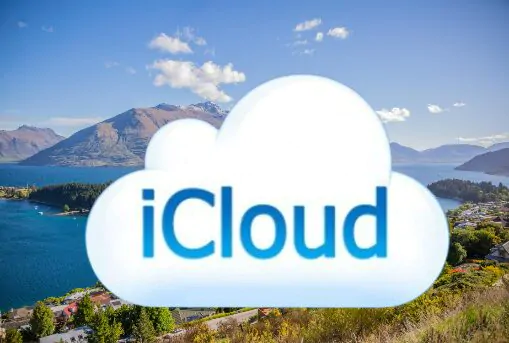
- Apple iCloud is a cloud storage and computing service provided by Apple Inc. It allows users to store and access various digital content, including photos, videos, documents, and more, across Apple devices.
- Working smoothly with Apple devices and it provides a smooth and seamless experience.
- Keeps your data private with end-to-end encryption.
- Automatically backs up photos, documents, and more.
Price:-
| iCloud+ Plans | Storage | Additional Features | Family Sharing |
|---|---|---|---|
| iCloud (Free) | 5 GB | Basic storage | No Family Sharing |
| iCloud+ 50GB | 50 GB | iCloud Private Relay, Hide My Email, Custom Email Domain, HomeKit Secure Video (1 camera) | Share with up to 5 family members |
| iCloud+ 200GB | 200 GB | iCloud Private Relay, Hide My Email, Custom Email Domain, HomeKit Secure Video (up to 5 cameras) | Share with up to 5 family members |
| iCloud+ 2TB, 6TB, 12TB | 2TB, 6TB, 12TB | iCloud Private Relay, Hide My Email, Custom Email Domain, HomeKit Secure Video (unlimited cameras) | *- * |
G. Amazon S3 (Simple Storage Service)
- Amazon S3 (Simple Storage Service) is a cloud storage service provided by Amazon Web Services (AWS), that provides a scalable and secure solution for storing and retrieving data.
- Being a part of Amazon Web Services (AWS), It is known for its reliability and flexibility, making it a popular choice for businesses with varying storage needs.
- Adjust easily for businesses with different storage needs.
- Gives you lots of control over who gets access.

Price:-
Amazon S3 Free Tier Features:
- Duration: 12 months free.
- Storage: Enjoy 5 GB in the S3 Standard storage class.
- Requests: Up to 20,000 Get Requests and 2,000 Put, Copy, Post, or List Requests.
Product Pricing After Free Tier:
- Explore Amazon S3 Pricing for details.
Amazon S3 (Simple Storage Service) pricing includes several factors such as storage usage, data transfer, and requests. It’s important to note that pricing details may change, and I recommend checking the official Amazon S3 Pricing page for the most up-to-date information.
H. Alibaba Cloud

- Alibaba Cloud is like a big online storage system also known as Aliyun, where businesses and individuals can store and manage their digital information, providing services such as storing data, running applications, and managing databases in the cloud.
- This Cloud storage gives you lots of computer tools on the internet, such as storage, databases, and other useful things.
- Keeping your info safe needs some tough steps. It uses smart security features such as encryption, access controls, to protect your data and follows all the important safety.
- This storage helps you with smart gadgets (IoT), making it easy to connect, control, and understand data from these devices in a safe way.
- This Cloud supports containerized applications through services like Kubernetes.
- Alibaba Cloud uses smart technology (AI) that helps with tasks like making machines learn and analyzing data to make businesses smarter.
Price:-
Alibaba Cloud offers a variety of services, each with its own pricing model. For the most accurate and up-to-date pricing information tailored to your specific needs, it’s recommended to visit the official Alibaba Cloud Pricing page or contact Alibaba Cloud directly.
I. IBM Cloud
- IBM Cloud is also a very good cloud storage services. They have different kinds of storage to fit what you need, like saving files (file storage), holding big data (object storage), and block storage, databases, AI, and blockchain capabilities. It’s like a digital storage room in the cloud for all your data.
- These storage services allow users to securely store, manage, and retrieve data in the cloud. IBM really cares about keeping things safe. They use special codes (encryption), control who can get in (identity and access management), and follow all the important rules (compliance certifications) to protect your data and apps.
- This storage provides developers with tools and resources to build, deploy, and manage applications.
- This Cloud is like a digital solution made for big companies. It’s designed to handle all the different and complicated things these companies need, providing solutions for various industries and business needs.
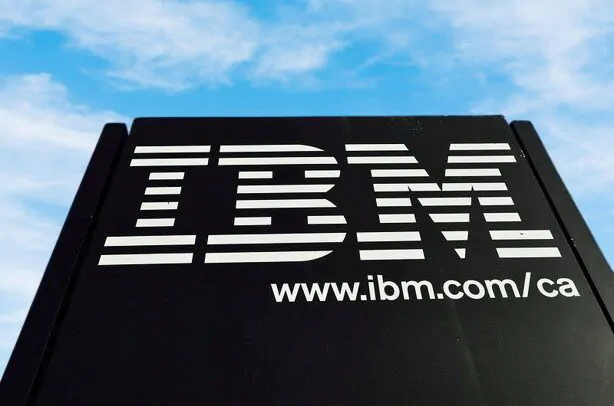
Price:-
IBM Cloud has a wide range of services, and each service may have its own pricing structure. IBM Cloud’s pricing can be based on factors such as resource usage, types of services, data transfer, and additional features. For more updated details visits – www.ibm.com/cloud/pricing
J. Box
- Box is mainly designed for businesses as a cloud storage provider, they also provide options for personal users. They offer two plans – one that’s free and another that comes with a price tag.
- This storage is all about serving businesses with its storage, it’s loaded with advanced features.
- It’s got a bit of everything – powerful teamwork tools, extra security with two-factor authentication, the ability to take notes, and even tools for managing projects.
- The one thing missing out of the box (pun intended) is private key management, which is crucial for zero-knowledge privacy. Unfortunately, this feature comes with an extra cost from Box, and they don’t disclose the price unless you reach out to them directly.
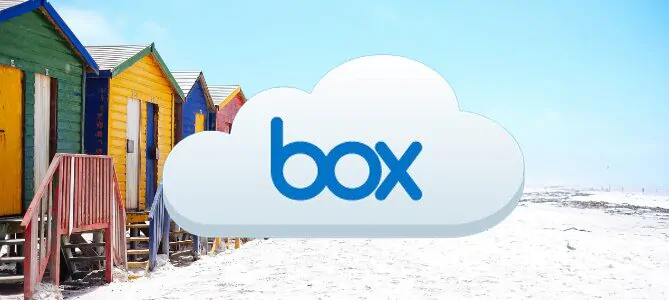
Price:-
- Free Plan: Enjoy 10GB for free.
- Upgrade Option: Unlock 100GB at $14 per month or $120 per year.
- Device Access: Connect on an unlimited number of devices.
- Website: Visit box.com for additional details.
Best Practices to Secure Cloud Storage
Security is most important area in any cloud storage service here are some below tips you can apply to secure all your important personal or business files.
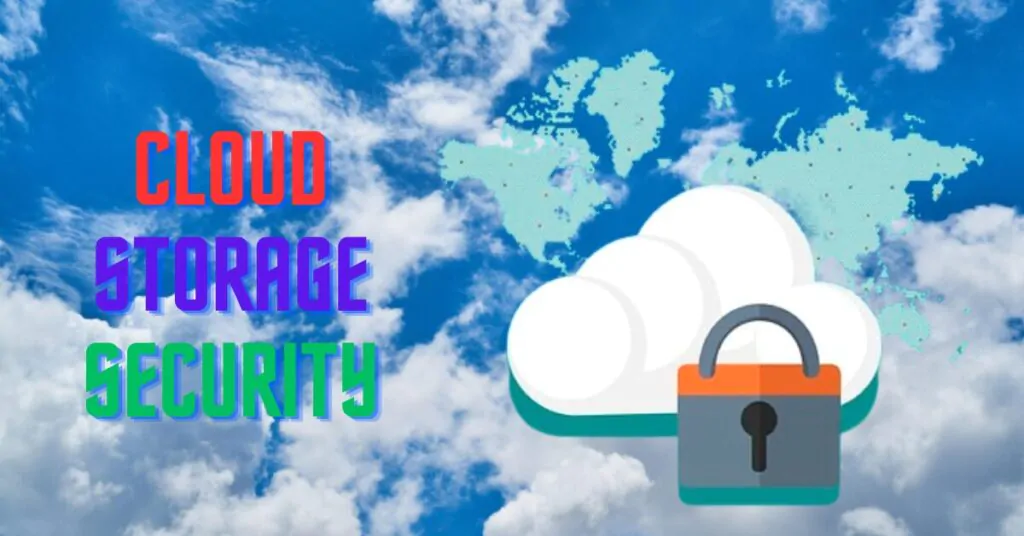
Strong Passwords: Always use strong and unique passwords for your cloud storage accounts. Mix in numbers, symbols, and both uppercase and lowercase letters to make them tough to crack.
Two-Factor Authentication (2FA): Always Enable 2FA for an extra layer of security. This usually involves getting a code on your phone or email in addition to entering your password.
Regular Checkups: Keep an eye on your account regularly. If you notice anything unusual, like logins from unfamiliar locations, take action immediately.
Secure Sharing: Be cautious when sharing files. Only share with trusted individuals, and use secure methods to send sensitive information.
Update, Update, Update: Keep your devices and apps updated. Developers regularly release updates to fix security vulnerabilities.
Backup Personal Data: Always regularly back up your important data. In case anything goes wrong, you’ll have a safe copy.
Know Your Settings: Understand the privacy and security settings of your cloud storage service. Adjust them according to your comfort level.
Educate Yourself: Stay informed about common online threats. Knowing what to look out for can prevent falling into traps.
Log Out When Done: Always log out of your cloud storage account, especially on shared or public computers. This ensures no one else can access your files.
Use Reputable Services: Stick to well-known and reputable cloud storage providers. They invest in security measures to keep your data safe.
FAQ: Cloud Storage
Q1. How do I know which cloud storage is right for me?
A. Think about what you need – like how much space, how safe it is, and how easy it is to use. Services like Google Drive, Dropbox, and Microsoft OneDrive have different good things, so pick the one that works best for what you want.
Q2. What happens if I run out of cloud storage space?
A. Most services offer options to upgrade your storage plan for a fee. Alternatively, you can manage your existing space by deleting unnecessary files or upgrading to a higher-tier plan.
Q3. Can I access my storage files offline?
A. Some cloud storage services may provide offline access features. Make sure to check the specific capabilities of the service you choose. Files marked for offline access can be viewed even without an internet connection.
A. Use the sharing features provided by your cloud storage service. Set appropriate permissions and share links securely. Avoid public sharing unless necessary, and always be mindful of the sensitivity of the content you’re sharing.
Q5. Can I trust cloud storage provider with my personal data?
A. Reputable cloud storage providers prioritize the security and privacy of your data. Always read the terms and conditions, understand their privacy policies, and choose a service from a trustworthy company.








